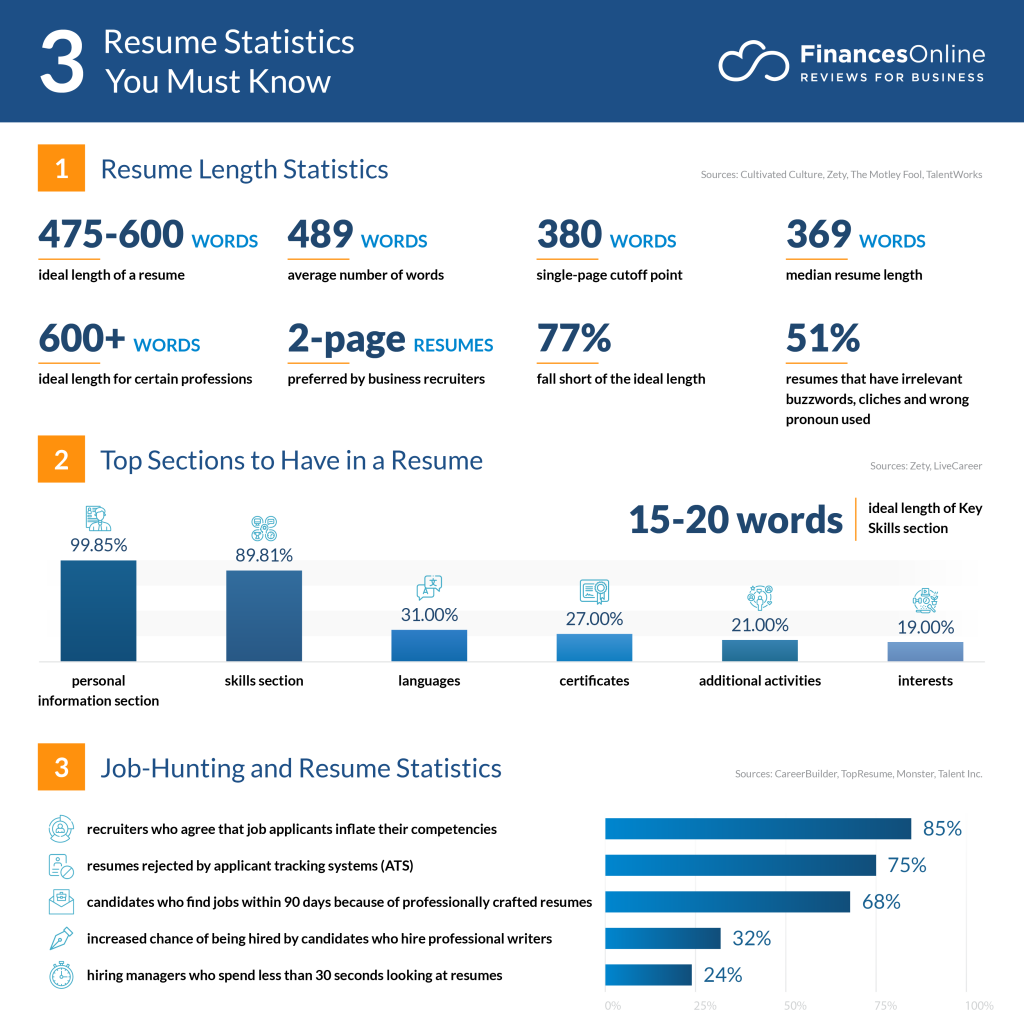Understanding how to write an academic CV for a masters application is crucial for standing out among a competitive pool of candidates. Applying for a master’s program is a significant step in the academic journey, and a well-crafted academic CV can make a substantial difference in your application.
This document is a detailed record of academic achievements, research experiences, and professional skills. Why is this important? Because it provides admissions committees with a comprehensive overview of an applicant’s qualifications, helping them assess suitability for a program.
But here’s the catch: A generic CV won’t make an impact. Instead, tailoring the document to highlight relevant experiences and accomplishments is crucial. This ensures that key strengths stand out, making it easier to demonstrate fit for the program and increasing the chances of acceptance.
What should you focus on? Strong academic credentials, research contributions, publications, teaching experience, and relevant skills should be structured strategically. Clear formatting, concise language, and compelling content will set an academic CV apart from the competition.
Here’s the good news! This article provides detailed, informative, and friendly guidance on creating an effective academic CV that captures attention and leaves a lasting impression on admissions committees.
See Also: How To Write A Master’s Personal Statement
See Also: Best CV Templates for UK Job Applications

Understanding the Purpose of an Academic CV
An academic CV, or a curriculum vitae, is a comprehensive document outlining academic achievements, research experiences, and relevant skills. Unlike a standard resume, an academic CV is more detailed and focuses on all scholarly activities.
The primary goal of an academic CV is to demonstrate relevant qualifications, expertise, and potential for success in a master’s program. By understanding how to write an academic CV for a master’s application, the entire academic journey can be highlighted compellingly to make a strong case for your candidacy.
Key Sections of an Academic CV
To create a successful academic CV, include key sections highlighting various aspects of your academic and professional background. These sections should encompass contact information, a personal statement, education, research experience, relevant work experience, publications, skills and certifications, awards, and references. Each section provides a comprehensive overview of all qualifications and achievements, making the application stand out.
Contact Information
Start your academic CV with your full name at the top, followed by your address, phone number, and professional email address. Accurate contact information is crucial for admissions committees to reach you easily. Use a professional email address, ideally with your name, to convey credibility and seriousness.
Personal Statement
A personal statement or objective is a brief section on academic interests, career goals, and reasons for applying to the master’s program. This section sets the tone for the CV and provides context for your achievements. This section contextualises achievements, helping the admissions committee understand how past experiences align with your future goals.
Crafting a compelling personal statement is crucial, as it highlights your passion for the field and demonstrates commitment and suitability for the program, making the application more memorable and persuasive.
Education
Detail educational background, starting with the most recent degree. Include the institution’s name, degree obtained, major or field of study, and graduation date. Mention any honours or distinctions received during studies. Understanding how to write an academic CV for a master’s application involves presenting your credentials.
See Also: How to Optimise Your CV to Get Interviews in the UK
See Also: How to Write an ATS-Friendly CV

Research Experience
Highlight research experiences by detailing projects, theses, or dissertations undertaken. Briefly describe each project, outlining specific roles, contributions, and key outcomes or findings. This showcases hands-on experience and an ability to conduct and complete significant research. Emphasise any publications or presentations from the research, demonstrating an ability to disseminate knowledge and contribute to academic discourse. This comprehensive portrayal of your research background will underline your expertise and readiness for advanced study in the master’s program.
Relevant Work Experience
Include any work experience relevant to the field of study. This can include internships, teaching assistant positions, or jobs that provide skills applicable to the master’s program. Describe relevant responsibilities and achievements in these roles. For example, as a teaching assistant, emphasise your experience managing classroom activities, supporting students, and contributing to curriculum development.
Publications and Presentations
List any academic publications, conference presentations, or papers authored or co-authored. Provide full citations for publications and include the titles and dates of presentations. Knowing how to write an academic CV for a master’s application means effectively showcasing relevant contributions to the field.
Skills and Certifications
Outline relevant skills and certifications that enhance your qualifications for the master’s program. Include technical skills, language proficiency, and specialised training. Highlighting these abilities demonstrates your preparedness and suitability for the program, showcasing a commitment to continuous learning and academic capacity.
Awards and Honours
Mention any academic awards, scholarships, or honours received, as they showcase dedication and excellence. Highlighting these accolades demonstrates a commitment to academic achievement, distinguishes you from other candidates, and underscores your potential for success in the master’s program.
References
Conclude the academic CV with a list of references. Include the names, titles, and contact information of professors, mentors, or supervisors who can vouch for the listed academic and professional abilities. Obtain their permission before listing them as references.
See Also: CV Optimization for International Students in the UK
See Also: CV Writing Services in the UK

Tips for Writing an Effective Academic CV
Writing an effective academic CV requires attention to detail and a strategic approach. Here are some tips for success:
- Tailor the CV: Customise the CV for each master’s program. Highlight experiences and skills that align with the specific requirements of the program.
- Be Concise and Clear: While an academic CV can be longer than a standard resume, it should still be concise and easy to read. Use clear headings and bullet points to organise information.
- Use Professional Language: Maintain a professional tone throughout your CV. Avoid jargon and ensure your language is precise and formal.
- Highlight Achievements: Focus on achievements and contributions rather than just listing responsibilities. Quantify the accomplishments where possible.
- Proofread Thoroughly: An academic CV with errors can undermine your credibility. Proofread your CV multiple times and consider having a mentor or advisor review it.
- Format Consistently: Use consistent headings, fonts, and spacing format. A well-organized CV with consistent formatting is easier to read and looks more professional.
- Include Relevant Keywords: Many universities use applicant tracking systems to screen CVs. Incorporate relevant keywords from the program description to increase your chances of being noticed.
See Also: CV Writing for Beginners
See Also: 5 Tips On how to Improve Your CV
Common Mistakes to Avoid
Understanding how to write an academic CV for a master’s application also involves knowing what to avoid. Here are some common mistakes that applicants make:
- Including Irrelevant Information: Avoid including information not directly related to your academic and professional qualifications. Focus on experiences that demonstrate suitability for the master’s program.
- Being Too Vague: Provide specific details about relevant experiences and achievements. Vague descriptions can make it difficult for admissions committees to assess your qualifications.
- Overloading with Information: While it’s important to be thorough, avoid overwhelming the CV with too much information. Prioritise the most relevant and impactful experiences..
- Using an Unprofessional Email Address: Ensure your email address is professional. Avoid using casual or humorous email addresses that can detract from your professional image.
- Neglecting to Update: Regularly update your academic CV to reflect new experiences, publications, and achievements. An outdated CV can give an ‘inactive in the field’ impression.
See Also: Writing CV With No Experience
See Also: CV writing for Scientists and Researchers
Unlock your dream job with Apply Buddy!

Our expert team provides tailored CV writing, interview coaching, and job search strategies.
Let us help you stand out from the crowd and secure the career you deserve.
Join Apply Buddy today and take the first step toward success!
Conclusion
Crafting an academic CV for a master’s application is a meticulous process that requires careful attention to detail. By understanding how to write an academic CV for a master’s application, you can effectively present your academic journey, research experiences, and professional qualifications.
A well-structured and tailored academic CV can significantly enhance the chances of securing a place in your desired master’s program. Remember to be concise, professional, and focused on highlighting your achievements.
With these guidelines, it’s easy to create a compelling academic CV that stands out to admissions committees and paves the way for academic success.
FAQs: How to Write an Academic CV for a Masters Application
How long should an academic CV be for a Master’s application?
An academic CV for a master’s application should typically be two to four pages long, detailed yet concise, and tailored to the specific program. It should highlight your academic achievements, research experience, relevant skills, and professional qualifications without overwhelming the reader.
What is the difference between an academic CV and a resume?
An academic CV is comprehensive, detailing academic achievements, research, publications, and professional experiences, often spanning multiple pages. In contrast, a resume is concise, usually one to two pages, focusing on relevant work experience, skills, and qualifications tailored to a specific job application.
Should I include non-academic work experience in my academic CV?
Including non-academic work experience in your academic CV is beneficial if it demonstrates relevant skills, expertise, or qualities applicable to your field or the master’s program. Focus on experiences that highlight transferable skills, such as leadership, project management, or communication, to strengthen your academic and professional profile.
How do I format publications and presentations on my CV?
Format publications and presentations on your CV by listing them in a separate section. Use a consistent citation style, including author names, titles, publication or conference names, dates, and other relevant details. Arrange entries chronologically or by category to ensure clarity and easy navigation for the reader.
